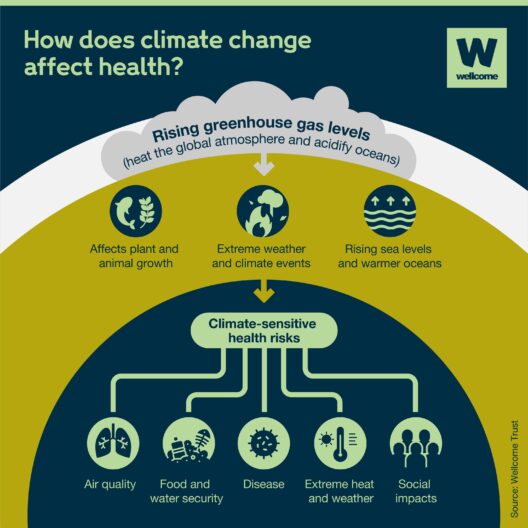As gamers increasingly engage with complex worlds and intricate narratives, the intersection of gaming and real-world issues becomes more pronounced. In the acclaimed game Civilization VI (Civ 6), players are presented with the pressing challenge of building and managing civilizations. Among the myriad factors that demand attention, climate change emerges as a pivotal theme. This often raises the intriguing question: Can you undo global warming in Civ 6? Such a query not only reflects a common observation but also hints at the deeper reasons for the fascination with integrating environmental issues into the gaming experience.
Civilization VI offers players a rich tapestry of historical and modern challenges. Each decision impacts not only the civilization’s advancement but also the environment. As the game progresses, players must grapple with various elements, such as technological advances and resource management, to ensure survival and prosperity. Among these elements, climate change manifests through the rise of environmental consequences generated by urban expansion, industrialization, and resource depletion. This feature parallels the realities of the Anthropocene, where human action significantly influences the Earth’s climate.
To comprehend whether it is feasible to “undo” global warming within Civ 6, one must first understand how climate change is represented in the game. Civ 6 utilizes a unique climate mechanics system that simulates the effects of humanity’s actions on the environment. Players witness the tangible repercussions of indiscriminate industrial growth, such as rising sea levels and altered ecosystems. This system serves to educate players about the delicate balance between progress and sustainability. Thus, while the game does not provide a direct mechanism for reversing global warming, it fosters awareness and prompts players to contemplate the implications of their choices.
Addressing climate change in Civ 6 requires a multifaceted strategy. Players can invest in technological innovations that mitigate environmental degradation. For instance, developing renewable energy sources, such as solar and wind power, contributes to lower carbon footprints. Furthermore, policies promoting carbon capture and sustainable agriculture can facilitate environmental recovery. However, the complexity of these choices reflects an essential truth: while players may implement strategies to curtail emissions, complete restoration of the environment remains an elusive goal.
The fascination with the concept of “undoing” global warming in Civ 6 speaks to a broader societal yearning for control over existential threats. In an era where climate degradation and related catastrophes loom large, players are thrust into a virtual realm where they can experiment with solutions. The game allows for an exploration of outcomes based on different strategic decisions. It invites players to contemplate critical questions: What happens if I prioritize industry over sustainability? Can I develop a civilization that balances ecological health with technological prowess? These in-game dilemmas parallel real-world challenges that necessitate delicate negotiations between economic interests and environmental stewardship.
Civ 6 brilliantly encapsulates the tension between progress and conservation. As civilizations thrive and expand, the consequences of their development become increasingly tangible. Natural disasters, such as droughts and floods, serve as constant reminders of how environmental mismanagement can derail even the most promising civilizations. Such mechanics not only immerse players in the narrative but evoke a sense of responsibility that resonates beyond the confines of the game.
Moreover, the game’s “Climate Change” mechanic functions as a representation of escalating global challenges. The increase in carbon emissions leads to severe climatic events and environmental degradation, impacting not just one civilization, but the entire game world. This interconnectedness mirrors real-world dynamics, where the repercussions of one nation’s environmental policies resonate globally. Players bearing the mantle of leadership must grapple with the ramifications of their actions, which often extend far beyond their own borders.
With the challenge of reversing climate change so prominent in the game, Civ 6 serves as an unexpected platform for climate awareness. Players who engage with these mechanics may leave the game with a deeper understanding of the complexities surrounding environmental issues. They are encouraged to reflect on their own lives, considering how their decisions impact the greater ecological narrative. This connection between game mechanics and real-world implications fosters a sense of agency, illuminating the potential for individual contributions in combating climate change.
As the global community becomes increasingly aware of environmental dilemmas, the role of gaming narratives evolves. Civ 6 exemplifies how video games can transcend entertainment, becoming vehicles for education and awareness. Players are nudged toward proactive engagement with climate change, challenging them to think critically about sustainability. The game conjures a vision of a future where environmental stewardship is not only important but imperative to civilization’s longevity.
While players might not be able to “undo” global warming entirely within Civ 6, they are offered a framework through which to understand and address the severity of climate issues. This understanding can translate to real-life actions, inspiring players to advocate for sustainable practices and become more environmentally conscious. In a world where gamers are often perceived as sedentary participants, Civ 6 dares to inspire a generation to become proactive in their environmental advocacy.
Ultimately, Civ 6 stands as a testament to the transformative power of gaming. It captures the essence of a global crisis, marrying the excitement of civilization building with a poignant call for ecological wisdom. The interplay between strategy and responsibility within this virtual landscape encourages players not only to reflect upon their in-game choices but also to consider their impact in the real world. As the line between virtual and reality continues to blur, the lessons gleaned from games like Civ 6 may offer a beacon of hope in the collective striving to combat climate change.








